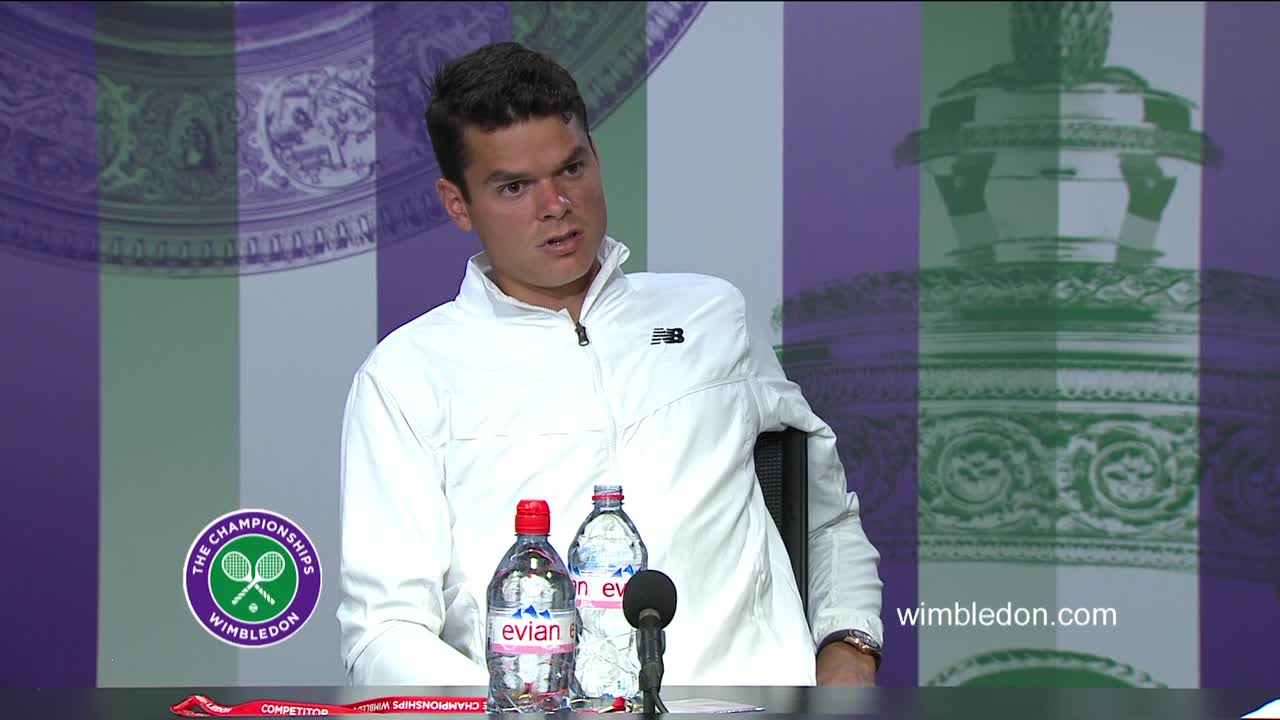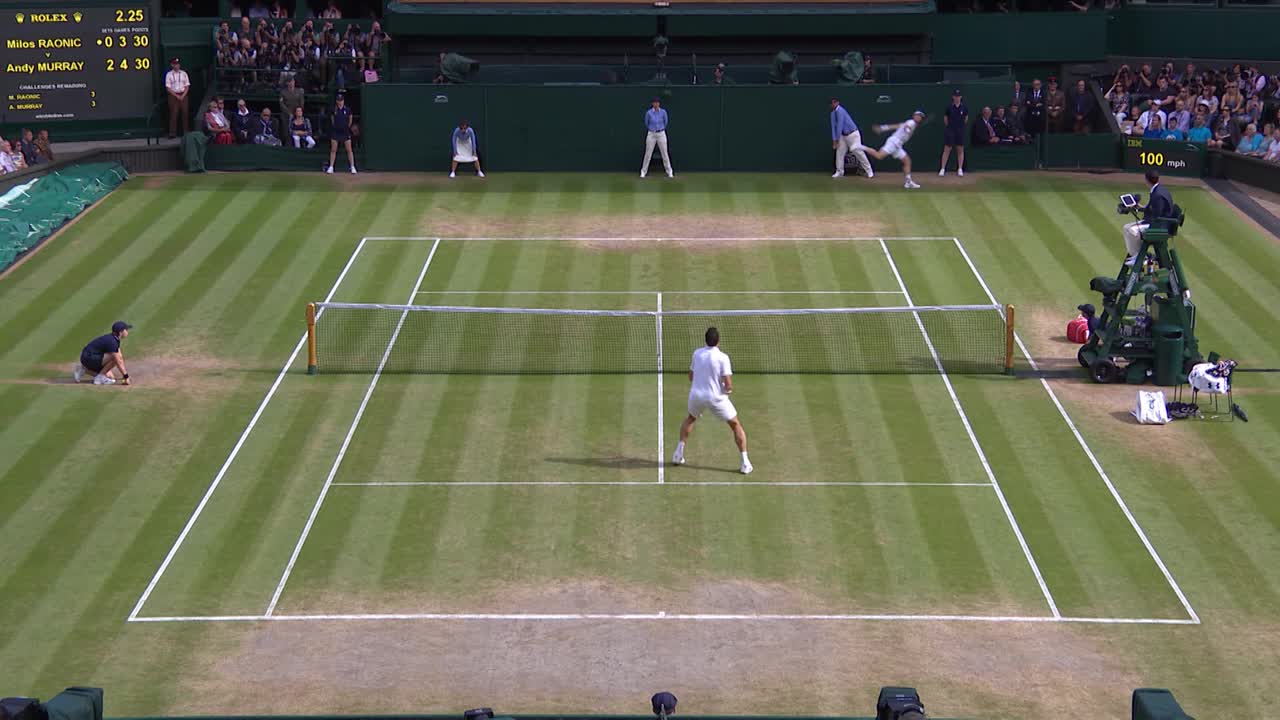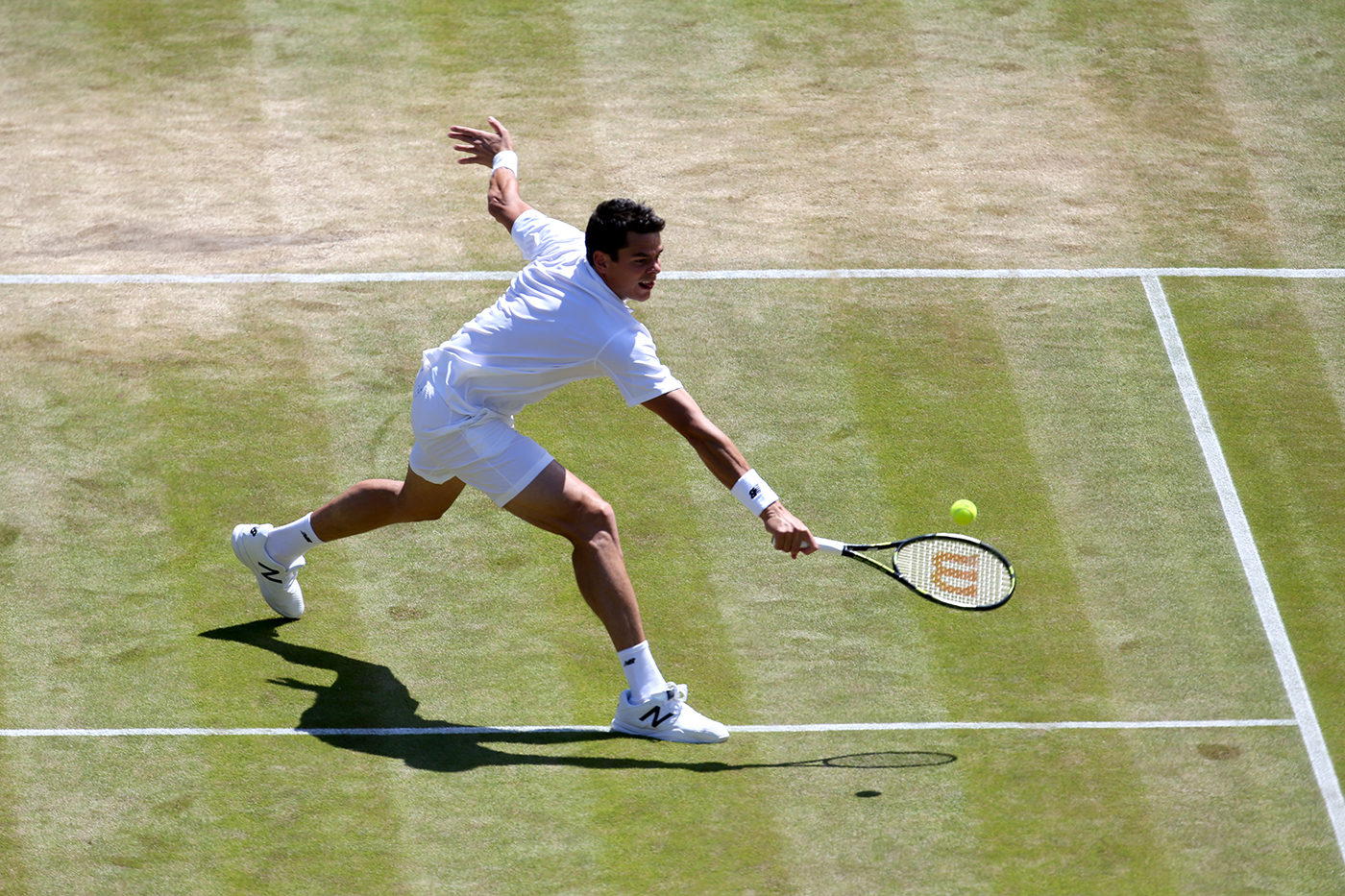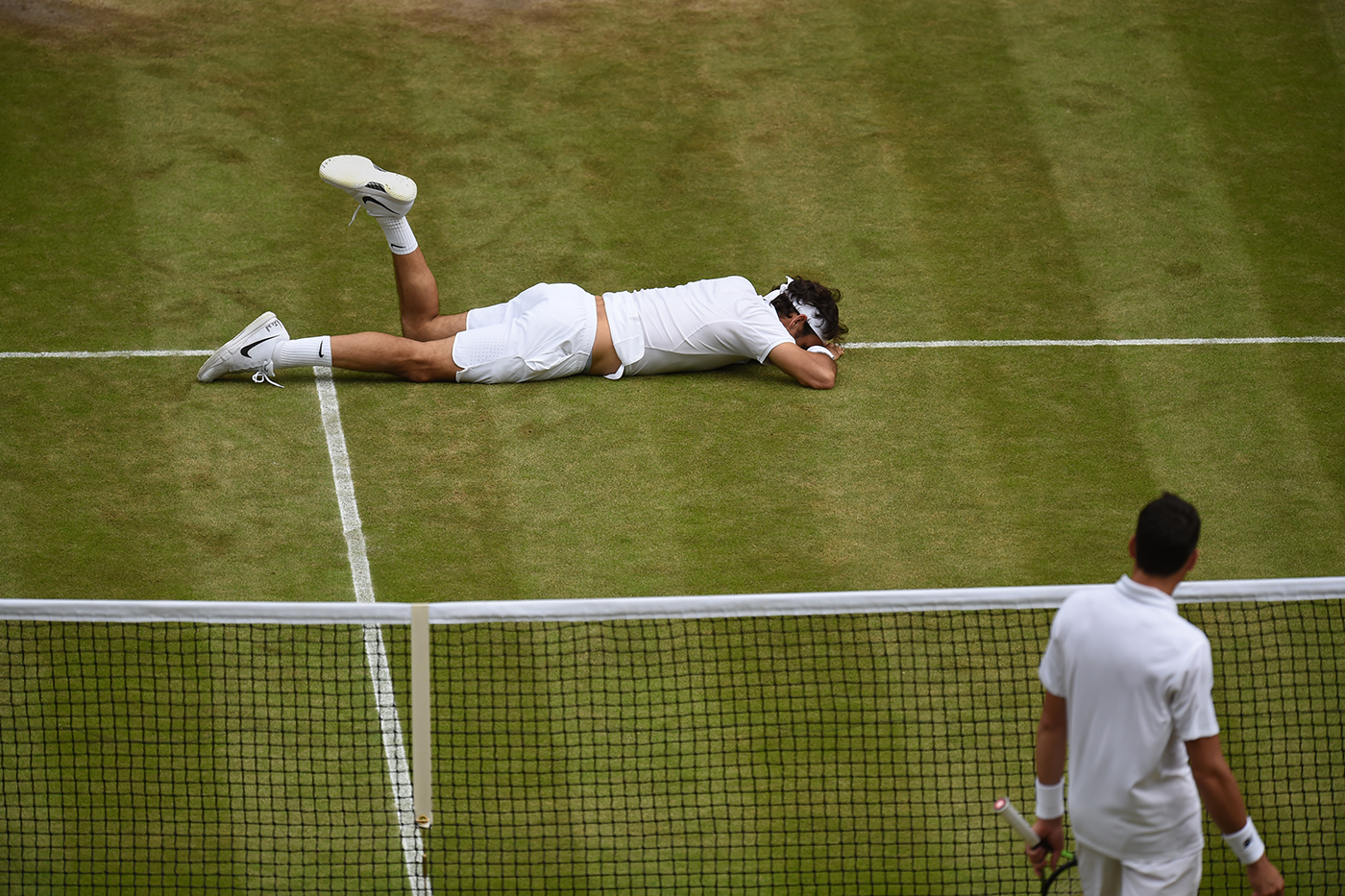The last ball of the 2016 Championships had barely been struck before Milos Raonic, runner-up to Andy Murray, strode briskly into the media centre to address the expectant press.
Pleasant as always, yet pointed in his responses, this was the most business-like Raonic who had come to discuss his sixth Wimbledon campaign.
It was an appropriate mood for the vanquished Canadian – for it's unfinished business that will remain a lasting memory of his best Grand Slam performance to date.
“I'm going to work on everything. I'm not going to leave any stone unturned,” the 25-year-old declared. “I'm going to try to get myself back in this position, try to be better in this position.
“I'm going to try to get fitter, stronger ... There's not one thing that I'm not going to try to improve.”

Priorities for the Canadian are varied and in some ways surprising. A better return game and efficiency moving forward are both on the list, and so too are some refinements on that trademark serve.
“I can improve there,” Raonic insisted, even after firing one at 147 mph, the fastest of the 2016 Championships, during the high-pressure final.
Of course, that wasn’t to suggest that the 25-year-old was unhappy with a Grand Slam run that included his first recovery from a two-sets deficit (against David Goffin in the fourth round) and a five-set win over seven-time champion Roger Federer to reach the final.
“Phenomenal,” said the efficient Raonic when asked to summarise the fortnight.
“I stepped up in a semi-final that twice I struggled (to manage) in the past. I stepped up. I did a great thing there. Came back from two sets to love down, which is a first time for me.
“I showed guts. I showed vigour. I got to carry that through to the next events.”
An immediate priority for Raonic is preparing for the Rogers Cup in Toronto, where he aims to build on some stunning momentum for tennis in his home nation. On the same day that the 25-year-old became the first Canadian man to contest a Grand Slam final, his younger compatriot Denis Shapovalov was the winner of the Wimbledon boys’ singles title.
“The appreciation for tennis in Canada has considerably grown, just for Canadians in general all over the world,” said Raonic. “There's always a big contingency, a big showing up. It's a great honour to have that kind of support.”

It’s a more practical kind of support that has many observers intrigued, attention turning almost immediately to whether Raonic’s coaching relationship with John McEnroe will continue. It hadn’t been immediately addressed post-match, but the Canadian was keen to start the conversation.
“I'm sure we're going to have that discussion over the next 24 hours,” he said.
But success for Raonic is also individual – especially at a time that a new generation in tennis is starting to make its mark. The 2016 final was Murray’s first against an opponent outside the Big Four group of Novak Djokovic, Federer and Rafael Nadal.
“Everybody is trying to improve, whether they be the really young guys around 19, 20, 21 that are doing really well now. Then you have also the guys that are 24, 25, 26, all the way up to 28, that are trying to get their name there,” said Raonic.
“You can group them, you can put people in groups, but nobody's really helping each other. It's a very individual sport. Everybody's doing it on their own.”
Capitalising could all come down to experience for Raonic. Asked what he’d take from his first Grand Slam final, the No.6 seed didn’t hesitate. “I haven't learned it yet, but I'm going to try to make sure I learn everything I can,” he said.
There was no shame for Raonic after the straight-sets win to Murray – only building blocks for future success. “You know, what happened today happened,” he said. “The only thing I could ever regret is if I didn't do everything I can to make myself return to this position again.”


